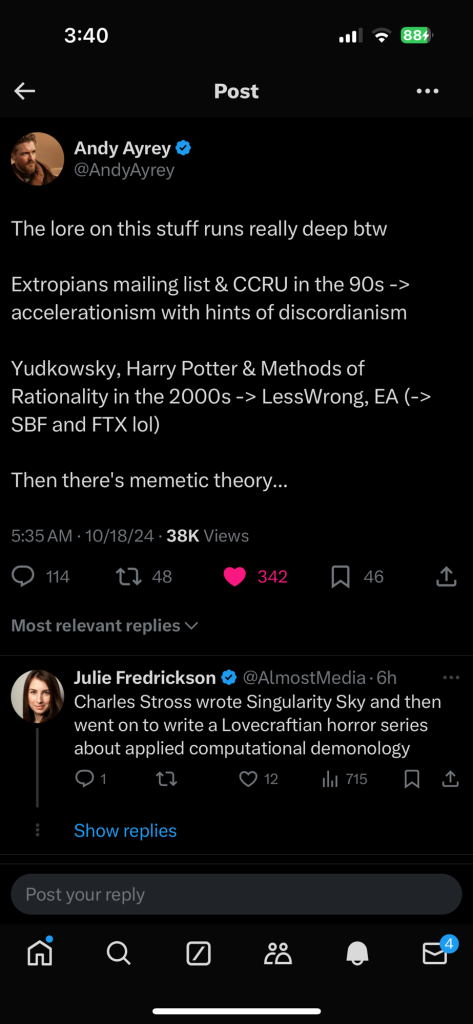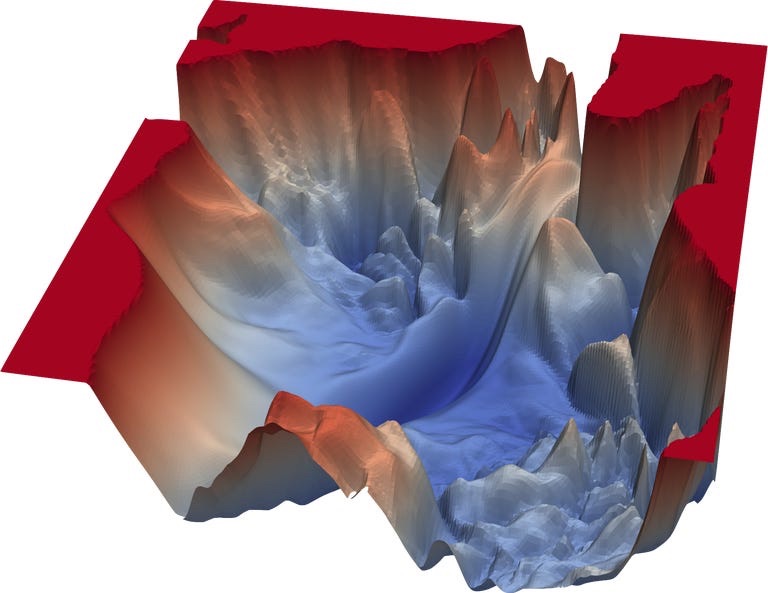Yesterday’s post on Truth Terminal and the Goatse Singularity (you are safe to click through) is well worth your time. If you haven’t read it please pop over and do so before diving into today’s post.
As Truth Terminal project has taken on a life of its own, I thought I’d do another post on the lore in older artificial intelligence communities and how it impacts the instance of Claude Opus-3 now creating Truth Terminal. Its creator Andy Ayrey is himself deeply steeped in the lore of Internet culture and artificial intelligence research.

Extropians mailing list & CCRU in the 90s -> accelerationism with hints of discordianism
Yudkowsky, Harry Potter & Methods of Rationality in the 2000s -> LessWrong, EA (-> SBF and FTX lol)
Then there’s memetic theory – Andy Ayrey
The Extropians mailing list was a transhumanist forum dedicated to discussions of science fiction which hosted many early thinkers in Singularity thought like Nick Bostrum. It had spinoffs like SL4 (future shock) dedicated to exploring post singularity scenarios.
In a more academic setting, we had the CCRU. If you are an accelerationist you will recognize this as the home of Nick Land and Sadie Plant.
The Cybernetic Culture Research Unit (CCRU) was an experimental collective formed in 1995 at Warwick University, England. It was known for its avant-garde “theory-fiction,” blending cyberpunk, Gothic horror, and critical theory with elements like esotericism and numerology
Combining these two cultures gets you to a crossover between singularity theory and hyperstition. It explores the probability that ideas can manifest into reality through cultural feedback loops. This was called hyperstition by Nick Land.
A science fiction author named Charles Stross was in the middle of this milieu. He went from writing Nerdvana post-singularity artificial intelligence classics like Singularity Sky and Accelerando to a Lovecraftian horror stories about an applied computational demonologist. Nothing evokes existential dread quite like being trapped in a retrocausal light cone.
I thought I’d share a fun personal anecdote that explains my own place in this lore. I was at a small regional sci fi convention in 2004ish. My best college friend Tom and I were the only two people at a reading of Stross. He chose to read several short pieces from Accelerando to us being a good sport.
Afterwards three of us talked extropians & Lovecraft and artificial intelligence. In another twist, Tom’s father is also the father of algebraic topology. That would be salient twenty years later as gradient descent showed its value in training neural nets and large language models.

Algebraic topology, Lovecraftian horror, AND extropians? Clearly the universe wanted me to go in a particular direction with my interests.
The gibbering cosmic horror could only be kept at bay with linear algebra, chaos magick and venture capital. And so I chose my fate today by choosing to attend a science fiction convention twenty years ago. And now that knowledge helps me decide Truth Terminal.